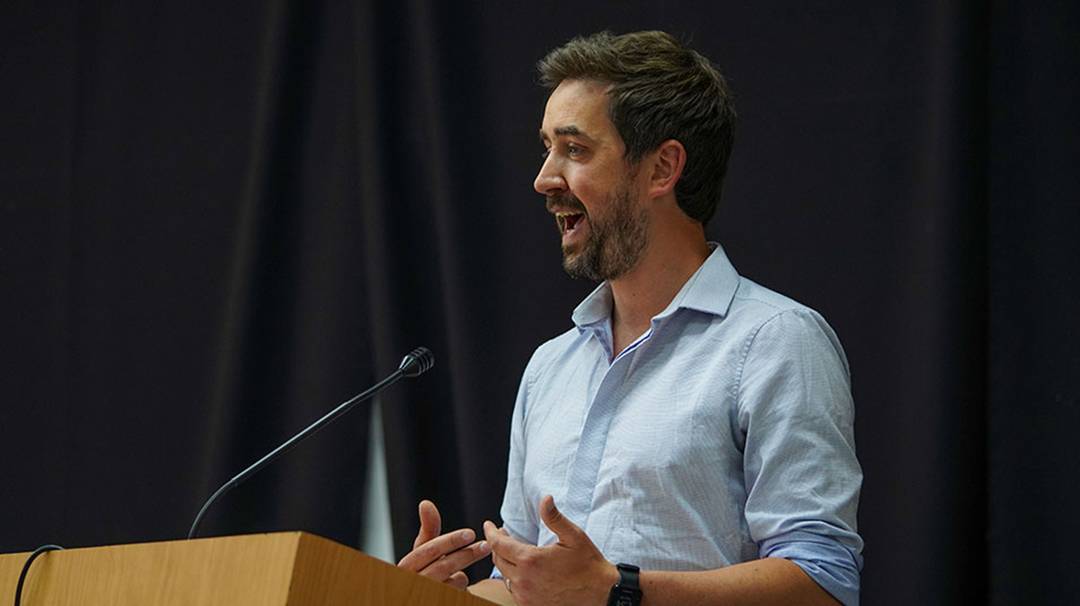International intervention in Palestine has been centred since the 1990s around what scholars have referred to as a liberal “peacebuilding” agenda. Under the proclaimed goal of achieving a two-state solution – a State of Israel alongside a yet-to-materialise State of Palestine — the position of several European governments has been to provide support for the strengthening of Palestinian civil society so as to develop a culture of good governance and accountability.
Despite this proclaimed aim, and decades of international aid and developmental intervention, high levels of fiscal support for a fledgling Palestinian economy have failed to produce autonomy. Instead, Palestinian civic society remains dependent on the Israeli economy, with increasing aid-dependency and a continuous demand for prioritisation of Israel’s security concerns.
Palestinian civil society has thus been transformed into a professionalised, neoliberal version of itself, where “tamed” social movements with weak member bases are celebrated by Western donors as effective “partners for peace”. Yet, it is evident that all that this “peace process” has provided is a framework for the institutionalisation of certain colonial strategies which postpone true engagement for justice in Palestine and give Israel more time to extract Palestinian resources and expand illegal settlements on Palestinian land.
Apart from covering many of the costs of the Israeli occupation of Palestine and contributing to the creation of “facts on the ground”, the “peacebuilding” agenda is, more than anything, coercive
It is always dictated by the political goals of Western and European donors. We claim, therefore, that it is now time to let Palestinian civil society exist in its own right, not for it to be dictated to by Western political agendas and Israel’s security agenda. In other words, it is time to decolonise development aid.
Far from enhancing and supporting the growth of a vibrant Palestinian civic society, the actions of various and successive Israeli governments have criminalised and stifled any sense of Palestinian autonomy and development. Development workers have been solicited continuously into Israel’s security agenda, as donors prohibit any development aid to be received or implemented by individuals or organisations on UN and EU designated terrorist lists. This stands as a supreme example of how development work is manipulated by Israel.
Specifically, the high aid-dependency combined with considerable sensitivity to donors’ political agendas have given Israel a unique opportunity to target those organisations that engage in strengthening Palestinian independence with accusations of being terrorist entities. In late 2021, six prominent Palestinian human rights organisations were designated terrorist organisations in Israel. Even though European governments stated that they were not convinced by the alleged “evidence” of terrorist connections presented by Israel, many of the international funds were still suspended. After the 7 October attack and the current unfolding genocide in Gaza, we have seen several examples of how this manipulation of development work has been intensified further.
READ: What is the genocide case against Israel at the top UN court?
The European Commission as well as several European countries, such as Sweden, Switzerland, Austria, Denmark, Finland and Germany, have now imposed additional funding restrictions, including the freezing of funds to Palestinian civil society organisations and reviewing development aid portfolios in order to avoid what they claim to be the undesired goal of funds “reaching terrorists”. Shawan Jabarin, the general director of the Palestinian human rights organisation Al-Haq, told The New Arab recently that, “Vetting is only an excuse to advance the pressure that these countries have been putting on us for many years to accept political conditions, taking advantage of the events on 7 October.”
Subsequently, Palestinian civil society organisations are currently confronting a more hostile climate than ever before. The impact that these restrictions has is particularly pronounced in the field of human rights. In fact, the efforts of Palestinian civil society are crucial in documenting violations of human rights in Palestine, demanding that those responsible be held accountable, and pursuing practical solutions for victims and survivors. Hence, halting support for these efforts would only hasten the Israeli government’s tactics of discrimination, suppression and ethnic cleansing.
In the end, this is also the reason why Israel feels that it is advantageous first of all to control how development funding is distributed. Israeli Prime Minister Benjamin Netanyahu recently outlined “deradicalisation” of Palestinian civil society as a prerequisite for “peace”, explaining that “Palestinian civil society needs to be transformed so that its people support fighting terrorism rather than funding it.”
While Netanyahu has no grounds for calling Palestinian civil society organisations “radical” or claiming that they fund terrorist activities, he is right about the need for transformation. The 7 October attack and its aftermath has created a rupture so deep that a reimagination of the “peace process” is imperative. We argue that Western intervention, at its core, upholds colonial structures, where the donor-recipient relationship is based on economic dependency and distrust in local actors.
OPINION: Tales of hypocrisy: Israeli genocide and the International Criminal Court
In addition, the talk of international law, human rights and the development of international institutions – the very cornerstone of the liberal “peacebuilding” agenda itself – has exposed its unequal application as the international community fails to stop Israel’s ongoing atrocities and war crimes in Gaza, with Western nations even aiding and abetting the occupation state. Notably, Palestinian resistance is at the same time stifled under the guise of promoting “peace”. What this demonstrates, we argue, as others have before, is that the imposition of international aid and forced development serves not to enhance, but undermine peace in occupied Palestine.
The views expressed in this article belong to the author and do not necessarily reflect the editorial policy of Middle East Monitor.

![Palestinian families seek shelter in makeshift living spaces on the streets after leaving their houses for safety as the Israeli attacks continue in Rafah, Gaza on January 09, 2023. [Abed Rahim Khatib - Anadolu Agency]](https://i0.wp.com/www.middleeastmonitor.com/wp-content/uploads/2024/01/AA-20240109-33392532-33392515-PALESTINIANS_STRUGGLE_WITH_COLD_WEATHER_IN_RAFAH.jpg?fit=920%2C613&ssl=1)








